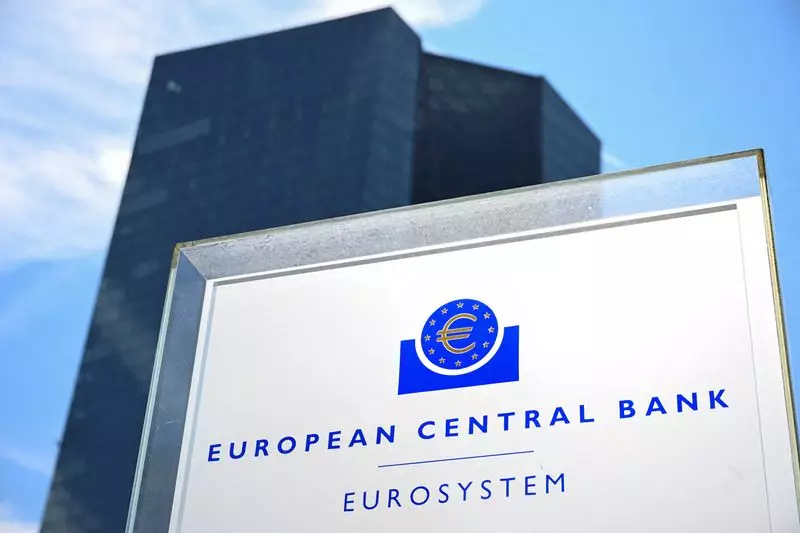The European Central Bank (ECB) is currently facing a heated internal debate among policymakers regarding the outlook for growth in the Eurozone. This conflicting narrative has created a rift that is likely to influence the ongoing rate cut discussions, with some members expressing concerns about a potential recession while others are more focused on the lingering inflation pressures. Sources close to the debate reveal that the ECB’s decision to cut interest rates in June was a preemptive move to address the slowdown in price growth. However, as the Eurozone economy enters a more fragile state, future policy decisions are expected to become increasingly complex.
A key point of contention within the ECB revolves around the impact of economic weakness and the possibility of a recession on inflation – the central focus of the bank as it aims to achieve a 2% inflation target by the end of 2025. While much of these discussions remain confidential, insights from sources with direct knowledge of the matter suggest that there is a significant difference in opinions. Doves within the ECB, though a minority, are concerned that the economy may be weaker than originally assessed, with heightened risks of recession and a noticeable decrease in job vacancies as companies start to reduce their workforce. This trend could lead to a decline in disposable income, subsequently affecting consumption and perpetuating a downward economic spiral.
On the other hand, the more conservative members, or the hawks, of the ECB argue that despite weak survey results, the actual growth figures in the Eurozone continue to outperform expectations. They point to robust consumption patterns, a successful tourism season, and a resurgence in construction activities as indicators of a resilient economy. Additionally, wage growth levels are deemed to be higher than what is typically associated with a 2% inflation target, leading to a positive trend in real incomes. While some industries, particularly in Germany, are experiencing challenges that could potentially push the country into a recession, it is seen as a structural issue that may take years to resolve, thus minimizing the role of monetary policy in addressing the situation.
The ongoing debate between doves and hawks within the ECB is likely to impact the upcoming policy decisions, particularly in terms of communication strategies. While there is a consensus to proceed with rate cuts in September, the diverging views on growth and inflation may influence how ECB President Christine Lagarde conveys the decision, setting the stage for potential adjustments in the October meeting. Some members advocate for a cautious approach with incremental rate cuts, while others emphasize the importance of keeping inflation concerns at the forefront of monetary policy. The rift within the ECB highlights the challenges faced in navigating the current economic landscape and underscores the complexity of addressing both growth and inflation objectives simultaneously.
The clash among ECB policymakers underscores the nuanced dynamics at play within the central bank as they grapple with diverging views on economic growth and inflation. As the Eurozone economy faces uncertainties and challenges, finding a balance between stimulating growth and maintaining price stability remains a delicate balancing act for the ECB. The upcoming policy decisions will shape the future trajectory of the Eurozone economy and shed light on the effectiveness of the ECB’s strategies in addressing the complex array of economic factors at play.

